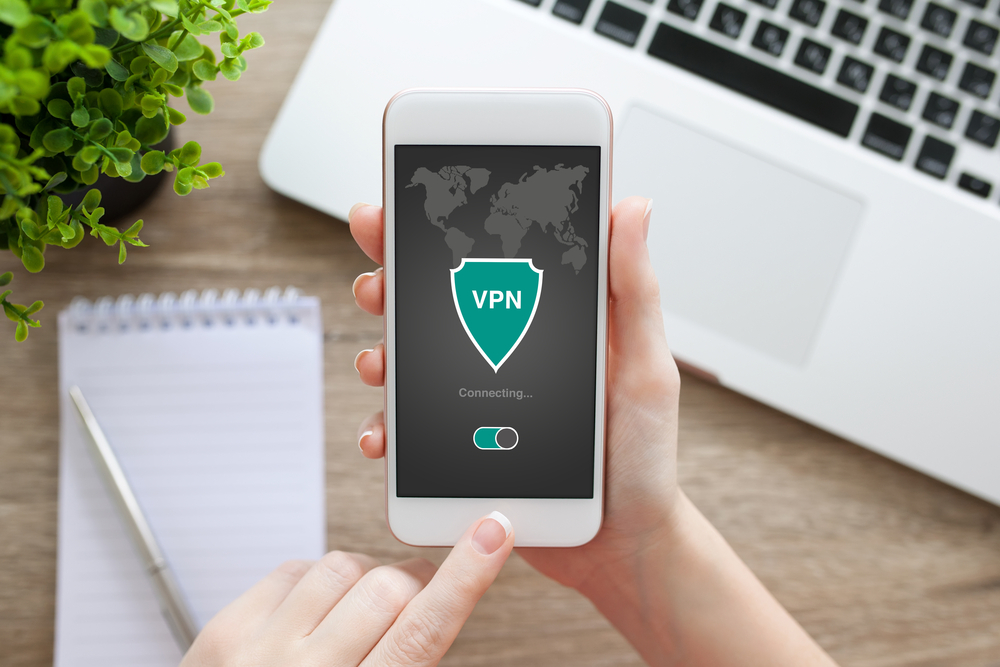Studying online brings a range of great benefits. But, cybercriminals are always looking to take advantage of people online.
Students who study online are especially vulnerable to cyber-attacks. They may fall victim to identity theft, ransomware, or data breach without realizing it.
This is a serious concern as the online higher education industry will be worth more than $74 billion by 2025, which means more and more students will study remotely rather than in the classroom.
Are you one of these students? Do you wonder if a VPN will protect your data and if it’s legal to use for studying?
Let’s take a look:
Why Use a VPN When Studying Online?
A VPN or virtual private network is a solution that allows you to access the internet using an encrypted connection.
In simple terms, a VPN connects you to the web via a network of secure servers.
VPNs also help boost privacy by allowing you to mask your IP and make it look like you’re connecting from a different location.
A high-quality VPN can help you boost security levels while doing any activity online, including studying.
Here are some benefits you can enjoy while using a virtual private network:
1. Protect Personal Information
All VPNs use an encrypted connection. This means that malicious users can’t intercept messages with sensitive data like your name, address, and payment information.
It’s important to note that not all VPNs are the same. For this reason, you need to work with a reliable provider that features high-quality encryption, among other features.
2. Achieve Higher Privacy Levels
In addition to protecting your personal data, VPNs can help you stay anonymous while browsing the web.
When you use a VPN, your IP address differs from your actual one. This makes it harder for online trackers to identify your identity and location.
At the same time, it’s harder for websites to collect your data and sell it later on.
3. Help Prevent Malware and Similar Threats
Malware like trojans and similar viruses can limit access to important files you use for studying and damage your devices.
The best way to protect yourself against these threats is to take preventive actions, like using a VPN.
Besides the fact that your data can’t be intercepted, VPN connections also help protect you from ad injection and similar attacks.
4. Conduct Research Without Getting Into Trouble
Students in journalism and similar careers need to perform extensive research.
The problem is that investigating sensitive topics online can trigger alerts within humanitarian organizations and the authorities.
Imagine you’re researching illegal trafficking. Your search patterns may look similar to that of a person trying to partake in these activities.
Therefore, you may have the authorities contact you and, in certain cases, ask you a few questions.
VPNs help create a safe space where students can conduct research and uncover valuable details without getting into trouble or giving the wrong impression while performing research.
5. Potentially Boost Internet Connection Speeds
It’s common practice for internet service providers (ISPs) to limit connection speeds. This is especially true for basic home plans, which can significantly slow down your online education.
The good news is that VPNs make it impossible for ISPs to determine data consumption in real-time. Therefore, connecting through a VPN could help you bypass speed limitations.
6. Experience Fewer Distractions
Personalized ads have transformed how we shop. However, they can also become a major source of distractions for some users.
Since ad personalization only works if you’re easy to identify online, VPNs can actually reduce the efficiency of these ads. Which, in turn, can actually result in fewer distractions.
Can Schools Detect My VPN?
VPN connections are encrypted, so your school won’t be able to see what you’re doing online. However, like your ISP, your school can see that you’re using an encrypted connection.
So, if you’re on a campus network, your school will be able to detect your VPN.
Can the School See What I Do on My Phone at Home?

If you’re using a VPN, your school won’t be able to see what you’re doing on your phone. However, if you’re using a faculty device, your school may gain access to your browsing history.
Now, there are several steps you can take to prevent this. For example, you can:
- Hire a reliable VPN service;
- Avoid using school property for personal activities;
- Online access to entertainment content outside of school hours.
A VPN is a great way to ensure high privacy levels whenever you connect to the internet, whether you do so from home or on campus.
If at any point you ask yourself, “Do I need a VPN on my iPhone?” the short answer is a resounding yes.
Is It Illegal to Use a VPN for Studying?
VPNs are legal in most countries and regions. However, it’s crucial that you research your location and figure out the laws surrounding VPNs in your country or city.
It’s also the responsibility of students to verify that their schools accept the use of VPN technology on campus.
Therefore, you should confirm with the right authorities before you connect to your school’s wireless network through a VPN for the first time.







